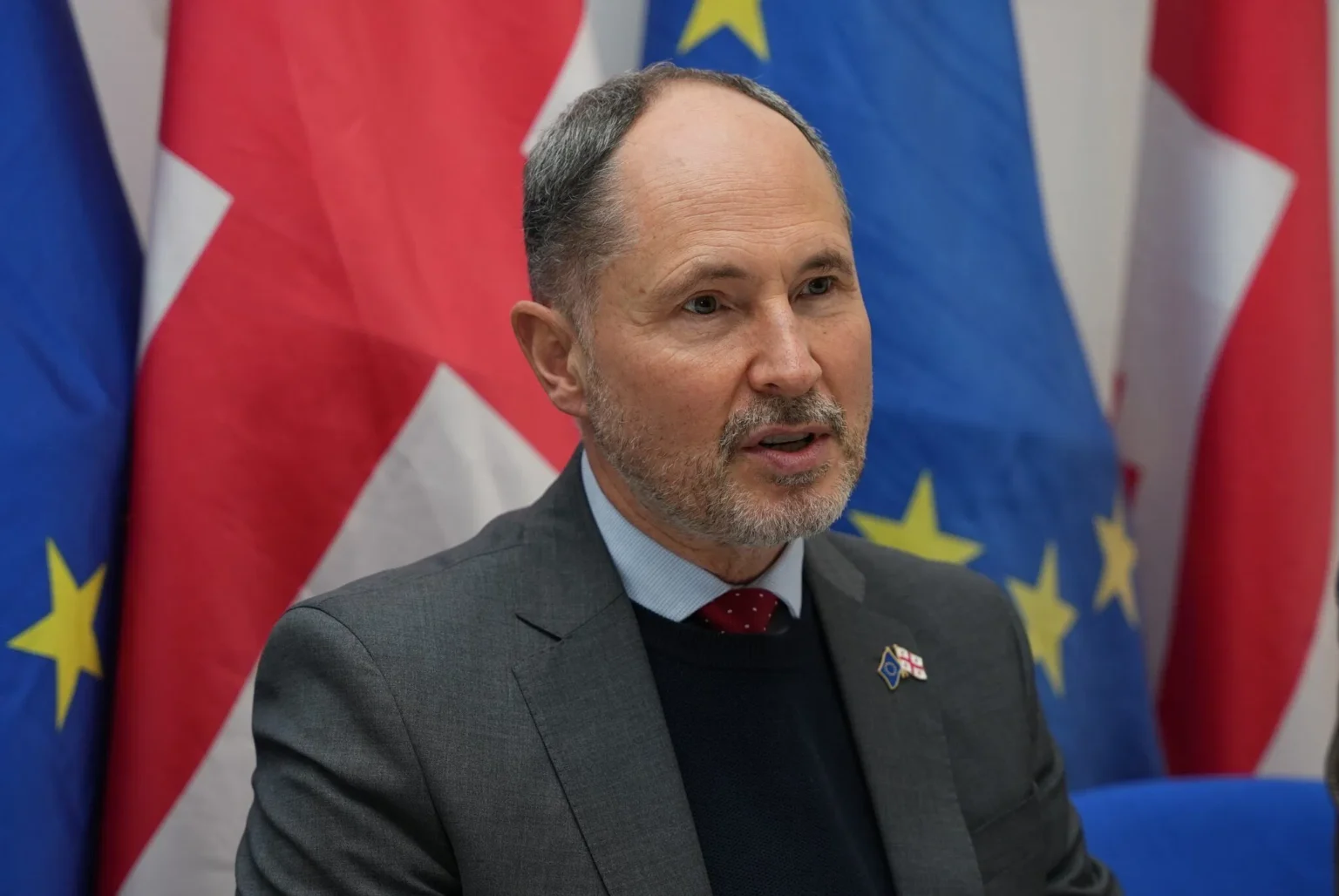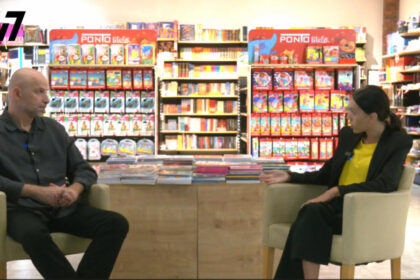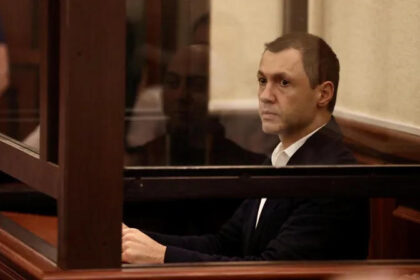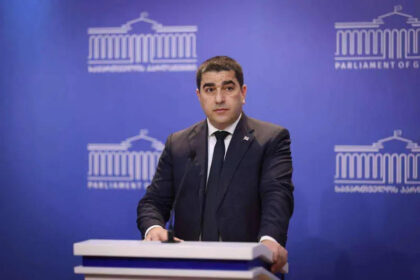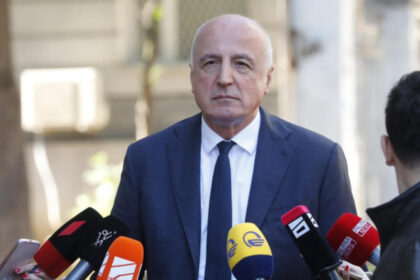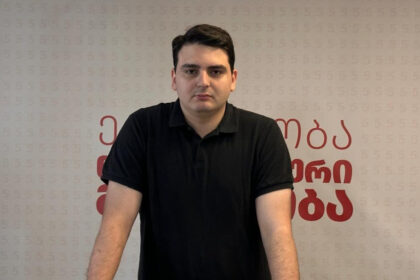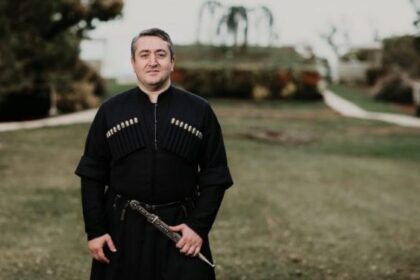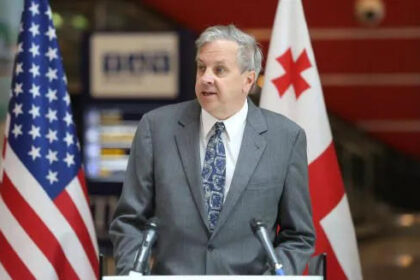**EU Criticizes Georgian Government’s Backsliding on Democratic Principles**
In a strong statement, European Union Ambassador to Georgia Paweł Herczyński has sharply criticized the ruling Georgian Dream party for backtracking on democratic values. Speaking at an event in Tbilisi today, May 14, Herczyński expressed deep concern over the government’s actions, which he said contradict the country’s commitments to democracy, the rule of law, and human rights.
**Intimidation and Violence**
The ambassador was particularly critical of the government’s handling of protests and opposition parties. He noted that since being granted candidate status in 2023, the ruling party has taken steps that undermine these principles. “Even worse,” he said, “what we have seen in Georgia over several months is intimidation, violence, brutality, and complete impunity of those who have beaten people on the streets.”
**EU Sanctions**
Herczyński emphasized that the EU is trying to introduce sanctions against those responsible for violence, but so far, unanimity among member states has prevented EU-wide sanctions. However, several countries have introduced individual sanctions on their own. He urged the Georgian authorities to change course and heed the EU’s calls.
**Banning Opposition Parties**
The ambassador also addressed the ruling party’s push to ban opposition parties, saying this is not in line with European values. “Banning political opposition is not the European way,” he said sharply, calling for dialogue instead.
**Visa-Free Travel and EU Membership**
Commenting on the EU’s possible suspension of visa-free travel with Georgia, Herczyński stressed that the country has benefited from a privileged relationship with the EU. He noted that this relationship is based on the understanding that Georgia is a democratic country seeking EU membership. However, he questioned whether Georgia still meets these criteria.
“What we have seen over the last year poses serious questions about whether Georgia is still a democratic country and, secondly, whether Georgia really wants to join the European Union,” he said. “So we need to rethink if all this privileged relationship is still merited. And this reflection is ongoing in Brussels.”
**Reflections on EU’s Decision-Making Process**
In response to criticism that the EU’s decision-making process is slow and ineffective, Herczyński acknowledged that the EU may move slowly but insisted it moves decisively. “All those negative developments that have been ongoing in Georgia for the last year are having consequences and will have consequences,” he assured.
Read More @ civil.ge




